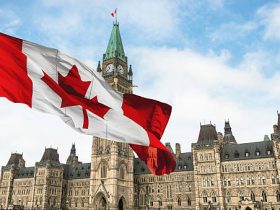Australia has a well-established healthcare system that consistently ranks among the best in the world. With an aging population and increased demand for healthcare services, the country is facing significant shortages in healthcare professionals, making it a top destination for international healthcare workers. Many Australian healthcare employers offer visa sponsorships to attract skilled professionals from abroad, particularly in sectors such as nursing, medicine, and allied health services. If you are a healthcare worker looking for visa sponsorship opportunities in Australia, here’s what you need to know.
1. In-Demand Healthcare Professions in Australia
Australia’s healthcare system is in need of various types of professionals, particularly in regional and remote areas. Some of the most in-demand healthcare roles that frequently offer visa sponsorship include:
- Registered Nurses: Specialties like aged care, emergency nursing, ICU, mental health, and pediatric nursing are highly sought after.
- General Practitioners (GPs): Due to doctor shortages, particularly in rural areas, GPs are in great demand.
- Specialist Doctors: Fields such as psychiatry, anesthesiology, cardiology, and surgery are experiencing a shortage.
- Physiotherapists: As the population ages, demand for rehabilitation and physical therapy services is rising.
- Radiographers: Medical imaging professionals are critical for diagnostic services in hospitals and clinics.
- Dentists: Many areas in Australia, especially rural and regional locations, need qualified dentists.
- Aged Care Workers: The aging population is driving demand for workers who specialize in elderly care.
2. Visa Options for Healthcare Workers
Australia offers several visa pathways for healthcare professionals seeking to live and work in the country. The two main categories of visas that offer sponsorship opportunities are:
Temporary Skill Shortage (TSS) Visa (Subclass 482)
This is one of the most common visa options for healthcare workers looking to work in Australia. It allows employers to sponsor skilled workers for up to four years, depending on the occupation listed on the Medium- and Long-term Strategic Skills List (MLTSSL) or Short-term Skilled Occupation List (STSOL). Many healthcare roles are included on these lists.
Eligibility Criteria:
- A valid job offer from an Australian employer in a nominated healthcare role.
- The employer must be an approved sponsor.
- You must have the relevant qualifications and registration to work in your healthcare field in Australia.
- Proof of English language proficiency (e.g., IELTS, OET) may be required.
Employer Nomination Scheme (ENS) Visa (Subclass 186)
The ENS visa is a permanent residency visa for skilled workers who have been sponsored by an Australian employer. Healthcare professionals can apply for this visa if they meet the eligibility requirements, which include having a relevant job offer and being nominated by an employer for a role on the MLTSSL.
Eligibility Criteria:
- At least three years of relevant work experience in your healthcare field.
- A valid job offer from an Australian employer.
- Relevant qualifications and registration in your healthcare profession.
Skilled Independent Visa (Subclass 189)
This visa does not require employer sponsorship and allows healthcare professionals to live and work permanently in Australia. Candidates must first submit an Expression of Interest (EOI) through SkillSelect and be invited to apply based on their skills, qualifications, and experience.
Eligibility Criteria:
- Your profession must be on the MLTSSL.
- You need to meet the required points threshold based on factors like age, work experience, and qualifications.
- Proof of English proficiency.
3. Qualifications and Registration Requirements
Healthcare professionals looking to work in Australia must meet certain qualification and registration requirements before they are eligible for employment and visa sponsorship.
Nurses and Midwives
To work as a registered nurse in Australia, you must be registered with the Australian Health Practitioner Regulation Agency (AHPRA). This requires:
- An internationally recognized nursing qualification.
- Proof of English language proficiency (e.g., IELTS, PTE, or OET scores).
- Completing a bridging course if necessary (for certain overseas qualifications).
Doctors
Doctors, including GPs and specialists, need to be registered with the Medical Board of Australia. If you are an overseas-trained doctor, you may need to pass the Australian Medical Council (AMC) exams to demonstrate your skills and qualifications. In some cases, you may also need to complete a period of supervised practice in Australia.
Allied Health Professionals
Allied health professionals, such as physiotherapists, radiographers, and occupational therapists, also need to be registered with AHPRA. Requirements include proof of qualification, English language proficiency, and in some cases, completing an assessment of your skills by the relevant professional body in Australia.
4. Finding Visa Sponsorship Healthcare Jobs in Australia
Once you have your qualifications and registration in order, the next step is to find visa sponsorship job opportunities in Australia’s healthcare sector. Here are some strategies for finding the right job:
Job Portals
Australia has several job portals that list healthcare positions offering visa sponsorship. Some of the most popular platforms include:
- Seek: One of Australia’s largest job portals with numerous healthcare opportunities.
- Indeed Australia: A global job site with listings from Australian healthcare employers.
- HealthTimes: A dedicated healthcare job portal that focuses on roles in nursing, allied health, and medical fields.
Recruitment Agencies
Many Australian recruitment agencies specialize in placing healthcare professionals and can assist with visa sponsorship roles. Some of the leading agencies include:
- Healthcare Australia: Specializes in nursing and allied health positions across the country.
- CC Medical: Focuses on placing doctors, nurses, and allied health professionals in various healthcare settings.
- MedRecruit: Offers job opportunities for doctors, including locum positions, with visa sponsorship options.
Hospital Websites
Many public and private hospitals in Australia list job openings directly on their websites. Some of the major healthcare providers that frequently hire international staff include:
- NSW Health: New South Wales’ public healthcare system, which offers a wide range of healthcare job opportunities.
- Ramsay Health Care: One of the largest private healthcare providers in Australia.
- Healthscope: Another major private healthcare group offering roles across various locations.
5. Networking and Professional Organizations
Joining professional healthcare organizations in Australia can provide you with valuable networking opportunities and job leads. Some organizations that support healthcare professionals in Australia include:
- Australian Nursing & Midwifery Federation (ANMF): A union that supports nurses, midwives, and aged care workers.
- Australian Medical Association (AMA): A professional association for doctors, providing resources and networking opportunities.
- Allied Health Professions Australia (AHPA): Represents various allied health professionals and offers resources for career development.
Attending healthcare conferences, workshops, and job fairs in Australia can also help you connect with potential employers.
6. Preparing Your Application
When applying for healthcare jobs in Australia, ensure your CV and cover letter are tailored to Australian standards. Highlight your qualifications, experience, and registration status with AHPRA or the relevant medical board. Clearly state your visa situation and your willingness to relocate.
Key Tips:
- Emphasize any international experience, as Australian employers often value diverse healthcare backgrounds.
- Be clear about your availability and any relocation assistance you may require.
- Mention if you have completed the necessary steps for registration (e.g., passing the AMC exams or obtaining AHPRA registration).
7. Be Ready for Interviews and Assessments
Once you’ve applied for jobs, be prepared for interviews and potential assessments. Many healthcare roles require interviews that assess both your technical knowledge and soft skills, such as patient communication and teamwork. Some positions may also require a practical assessment, depending on your field.
Make sure to familiarize yourself with Australia’s healthcare standards and procedures, as employers will want to ensure that you can adapt to their systems.
Conclusion
Australia offers numerous opportunities for healthcare workers from abroad, with visa sponsorship available for many in-demand roles. By ensuring that your qualifications and registrations meet Australian standards, applying for positions through job portals and recruitment agencies, and networking within the healthcare community, you can increase your chances of securing a sponsored job. With its high quality of life, competitive salaries, and welcoming environment for international professionals, Australia remains a top destination for healthcare workers seeking new career opportunities.







Leave a Reply